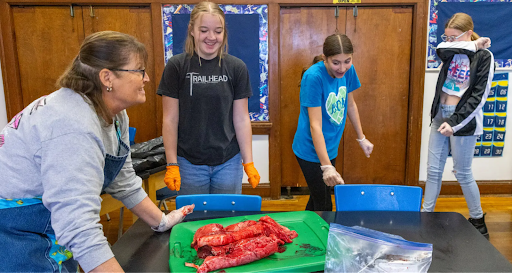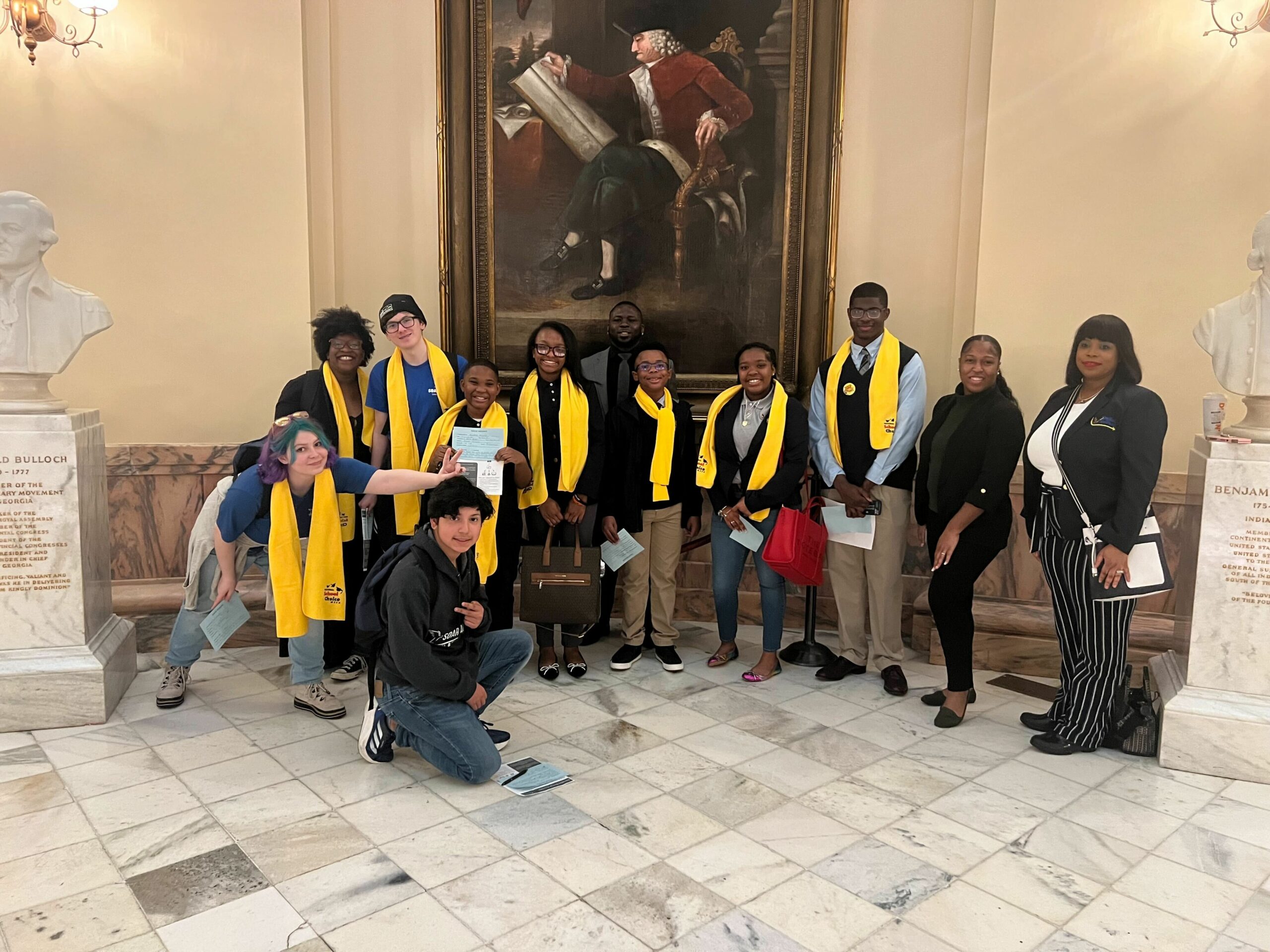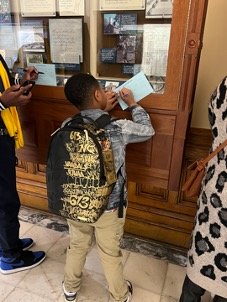Jump to: Top Tasks | From the Field | Key Resources | Moments of Resilience
It is week 68 of our new reality and the scope of shifts that took place in American public education during the pandemic are coming into full view.
Last time in the New Reality Roundup, we were joined by former DC Chancellor Kaya Henderson, whose new venture, Reconstruction, is leveraging a more connected world to offer courses grounded in and focused on the history and experiences of African Americans. We also spotlighted a pair of wins by Transform Education Now in Colorado that expands tutoring and ensures a parent’s right to know how dollars are being spent.
This week, we pause to take stock of the scale of ramifications stemming from the pandemic including the loss of students from the public school system and a sharp drop in student achievement after more than a year of disrupted learning. We also look at solutions being proposed across the country by our 2021 cohort of National Voices fellows as we seek to recover and Believe in Better.
SUBSCRIBE
TOP TASKS
Take stock of the scale of what the pandemic has wrought
“America’s public school system lost almost 1.3 million students this year,” reports Eesha Pendharkar for EdWeek. “The loss was spread out across the nation, touching almost every demographic group and concentrated in lower grades. It will likely have academic, financial and staffing repercussions for years to come.”
Since the launch of this newsletter in March of 2020, we’ve put a spotlight on two big shifts that underpin this change: the missing students who disappeared from the system as school buildings shuttered who may not be receiving any education at all and the students whose families chose to withdraw from districts in favor of learning pods, homeschooling and private school. Collectively, these shifts have added up to a massive enrollment shift in a single year.
At the same time, we are starting to get a look at the enormous learning losses experienced by the students who stayed in the district system. “Texas students suffered deep learning loss — particularly in math — after a challenging school year that forced millions of children to learn from disruptive environments during the pandemic,” writes Emily Donaldson in the Dallas Morning News. For example, between 2019 and 2021, the number of 8th grade Texas students who did not meet standards in math more than doubled from 19% to 40%. In Dallas public schools, the increase was even more stark, with 8th grade students who did not meet the math standards increasing from 19% to 46%.
In Chicago public schools, a deep dive by Sarah Karp for WBEZ found that “Fs spiked and attendance plummeted” over the past year and the changes exacerbated existing inequalities: “WBEZ’s analysis shows that the rise in Fs and drop in attendance in high schools in general is closely tied to poverty. The greater the poverty level at a school, the greater the spike in Fs and absenteeism.”
Sea changes like this are rare in the history of American education, and the combination of unprecedented enrollment declines and declines in student achievement will continue to shake up the American education system long after the pandemic is over.
THE TASK OF THE WEEK IS
Elevate local voices for constructive change
Against the backdrop of these enormous challenges, a new generation of leaders are stepping forward with new ideas for meeting the new needs of students. To help support these leaders, 50CAN created the National Voices Fellowship, and members of the 2021 cohort are stepping forward to help drive a solution-oriented education debate.
Last week, New York fellow Arthur Samuels wrote for the 74 Million on three ways the nation’s largest school district can immediately be improved to ensure it is performing in this time of enormous student need: ending residential assignment, creating more high-quality school options and recruiting top talent. “The most effective way to create good schools in poor neighborhoods? Put the best leaders in charge of those schools,” Samuels writes. “The next mayor should make it his or her mission to cultivate and recruit the top instructional leadership in the country.”
Talent is also on the mind of Texas fellow Dr. Cassandra Herring, who penned a piece for EdSurge last week on the need for colleges of education to step up with the kind of preparation teachers need today. “It is past time for educator preparation programs to prepare teachers to shift: away from operating within the assumptions they have made about students and their families who are culturally different than themselves and toward engaging in a culture of curiosity and inquiry.”
“Instructional infrastructure, to me, is a high-quality curriculum,” Washington DC fellow Alex Spurrier shared on a recent podcast appearance, “Using some of the federal stimulus money to adopt and support high-quality instructional materials and really well-structured curricula is something we have to do as a baseline.” Spurrier, who has been arguing for investment in curriculum over the past months, sees transparency on what curriculum is being used by each school and district as an essential first step.
THE TASK OF THE WEEK IS
FROM THE FIELD
NewMexicoKidsCAN Executive Director Amanda Aragon, was honored as the recipient of the 2021 Jennifer Riordan Woman of Influence award. The award is given annually in recognition of women who better Albuquerque through civic engagement.
DelawareCAN, fresh off announcing their new executive director, Britney Mumford, secured a pair of wins this week on issues that have been long-term priorities for the team. First, was Governor Carney’s signing of HB 198, a bill that passed with bipartisan support and that was championed by DelawareCAN’s Youth Advocacy Council. The new law will require all public schools to offer students instruction in Black history. DelawareCAN has also long sought the reduction in school board term lengths and are poised for victory after a bill reducing term lengths from five to four years passed both the House and Senate and now heads to the Governor’s desk.
GeorgiaCAN released their summer learning resource guide for parents, with information for how Peach State families can access, including reading resources, outdoor activities and virtual summer camps.
HawaiiKidsCAN is celebrating that all three of their key legislative priorities were absent from the Governor’s “intent to veto” list, increasing the likelihood the bills will become law. Meanwhile, Executive Director David Miyashiro continues to fight for a virtual option for any Hawaiian family who wants one next year.
Key Resources
- A new study published at RedefinED found that Florida families who take part in the Gardiner Scholarship Program–an ESA that offers $10,000 to students with special needs–are more likely to use part of the funds for tutoring and curricular needs the longer they remain on the scholarship. The results suggest that when given the option, parents will increasingly customize their education experience.
- Former Florida Governor Jeb Bush penned an op-ed for USA Today on lessons learned from Florida’s school choice initiatives and the importance of scaling them nationwide.
- In Education Week, thirty years after the nation’s first charter school, AEI’s Rick Hess interviews Nina Rees, the head of the National Alliance for Public Charter Schools, on lessons learned and the impact that charter schools have had.
- ISTE makes recommendations to states on how K-12 schools can better prepare students to be digital citizens, including digital learning standards and guidance for educators.
- FutureED did the important work of analyzing the 32 state plans already submitted to Washington detailing how they’re using federal stimulus dollars to reopen schools and support students and educators.
- Marguerite Roza, writing for The Grade, offers a process for both journalists and advocates to understand and communicate about how districts are putting the federal stimulus funds to use.
- The VELA Education Fund profiles Wise Young Builders, a program that combines carpentry and mathematics education with an emphasis on the real-world use of math for rebuilding communities.
Moment of Resilience

In celebration of Pride month, the PIE Network profiled the work of eight LGBTQ+ education advocacy leaders, including 50CAN’s own Marcus Brandon, who serves as CarolinaCAN’s executive director. “I am fortunate enough to be Black and LGBTQ as I identify as both,” Marcus shares. “The uniqueness of my experience is why I push so hard for parental empowerment and individualized education.”







